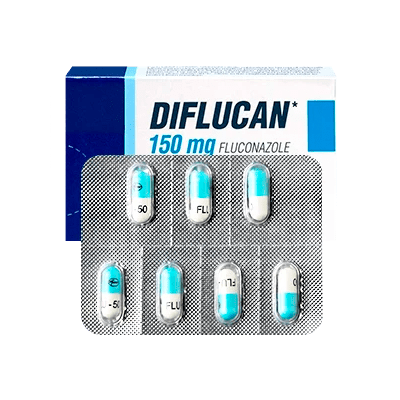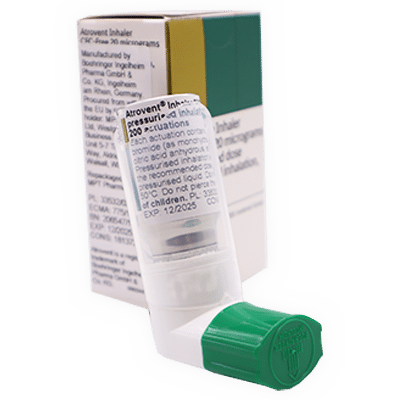I used Diflucan as prescribed by my doctor after the symptoms of thrush appeared. The drug worked quite quickly, and after a couple of days I noticed a significant improvement. I did not find any disadvantages, everything went smoothly, there were no side effects.

Diflucan
- Quality products
- Support 24/7
- Fast delivery
What is it?
Diflucan is a well-known antifungal drug that is widely used to treat various fungal infections, such as candidiasis. It is particularly effective against infections affecting the vagina, mouth and throat, as well as fungal infections of the urinary tract, abdominal cavity and even some types of lung infections. Its main mechanism of action is that it interrupts the formation of the cell membrane of the fungus, which leads to its destruction. This makes Diflucan very valuable in the fight against infections caused by fungi sensitive to this drug.
Composition
The composition of Diflucan plays a key role in its effectiveness. The main active ingredient is fluconazole, it provides a direct effect on fungal cells, destroying their structure and preventing reproduction. This is a drug from the class of antifungal drugs, and its unique formula allows you to quickly and effectively combat various types of fungal infections. In addition to the main component, this drug also uses auxiliary components that promote optimal absorption and uniform distribution of the active substance in the body.
- Fluconazole is the main active ingredient of the drug;
- Auxiliary components - improve absorption and bioavailability.
Taking into account the individual tolerance of the components is especially important when choosing and prescribing a drug in order to avoid possible allergic reactions or other adverse effects. This is undoubtedly an important factor that must be taken into account in the demographics and characteristics of the patients body when prescribing Diflucan.
How to use?
To use Diflucan correctly, it is important to follow certain instructions. This helps not only to feel the effect of treatment as quickly as possible, but also to minimize possible side effects. The main recommendations are to strictly follow the dosage of the drug suggested by the doctor in accordance with the type of infectious disease.
- Take Diflucan once a day, trying to take it at the same time for the best effect.
- The medicine can be taken with food or on an empty stomach, with a sufficient amount of water.
- It is necessary to strictly follow the prescribed dosage: vaginal candidiasis - 150 mg once; oral and throat candidiasis - 50 mg daily for the required period; skin infections - 50 mg daily from 2 to 4 weeks.
For children, the dosage is determined based on body weight and the existing disease. Regardless of age, it is important to strictly follow the doctors recommendations and not self-medicate, especially for patients with chronic diseases. It is necessary to pay attention to all the characteristics of the drug and take into account the possible risks in case of independent changes in dosage. Following the instructions and recommendations of a specialist is the key to successful treatment and prevention of further complications.
How does it work?
Understanding how Diflucan works is important for anyone taking it to treat fungal infections. This drug works by interfering with the synthesis of the cell membrane of fungi, blocking substances necessary for their growth and reproduction. This creates unfavorable conditions for their existence, which leads to the destruction and death of fungal cells. Due to this feature, the drug effectively fights a large number of different types of fungal infections.
The process of action can take some time, so it happens that improvements are not immediately noticeable. However, you should continue taking the drug according to the prescribed course to achieve complete destruction of the infection. This is extremely important to prevent the development of resistance of fungal strains to the action of fluconazole. The drug can work differently depending on the specific organism, so medical supervision and observation will help adjust the course of treatment to achieve the best result.
Modern medicine is constantly exploring new approaches and technologies in the fight against fungal infections, but Diflucan still occupies one of the leading places in the list of drugs prescribed in such cases. Its effectiveness and reliability have been tested over time and it continues to be an integral part of therapy against fungal diseases.
Indications
Diflucan is used to treat and prevent a wide range of fungal infections. Given the versatility of the drug, it is actively used in medical practice to prevent the spread and complications of fungal infections.
- Treatment of vaginal candidiasis (thrush) and oral candidiasis;
- Therapy of fungal infections of the skin and mucous membranes;
- The desire to prevent the progression of internal fungal infections;
- Prevention of fungal diseases in people with reduced immune functions.
The range of application of this drug is quite wide, which allows it to be used in a variety of clinical situations. However, the appointment of Diflucan should always be justified and agreed upon with a medical specialist, since this avoids the risk of complications or excessive stress on the body. In addition, it is important to take into account the individual characteristics of the patient and possible reactions to the drug.
Contraindications
Despite the effectiveness of Diflucan, the drug has a number of contraindications that must be taken into account before starting treatment. This is extremely important to ensure patient safety and prevent unwanted effects associated with taking the drug.
- Do not use in individuals who are intolerant to fluconazole or other azole antifungals.
- Use with caution in patients with liver or kidney disease.
- Individuals with hypersensitivity to the components of the drug should avoid using it.
These contraindications must be considered in each specific clinical situation. Regardless of the age and health condition of the patient, the prescription of the drug should be justified and based on an understanding of the potential risks and benefits in specific treatment conditions. Be sure to consult a doctor before starting to take this drug to avoid possible complications and adverse reactions of the body.
Side effects
Taking Diflucan may cause some side effects that should be taken into account. Although they do not usually occur in all patients, it is important to be aware of possible reactions in order to identify them in a timely manner and take action.
- Gastrointestinal disorders such as nausea, diarrhea, or abdominal pain may occur when taking the drug;
- Dizziness and headache may also be side effects;
- Skin rash and itching, which may indicate an allergic reaction;
- In rare cases, changes in liver function are observed, which requires contacting a doctor.
Patients should inform doctors about the occurrence of any unwanted symptoms. In most cases, side effects go away on their own after some time after starting to use the drug. However, if they intensify or become extremely unpleasant, it is recommended to seek medical help. General adherence to professional recommendations and careful attention to your condition can help prevent or minimize the occurrence of adverse reactions.
Frequently asked questions
Diflucan Reviews and Experiences
Diflucan helped me get rid of a chronic urinary tract infection. I tried different drugs, but only with Diflucan did I notice a significant effect. True, there was slight nausea, but this did not interfere with the overall positive dynamics. I recommend the drug to those who are looking for a reliable remedy.
My impression of Diflucan is neutral. I used the drug to treat a fungal infection on my skin, and although it did not go away immediately, after a few weeks the skin condition improved. Of the side effects, I experienced a little dizziness, but everything was compensated by the results of the treatment.









